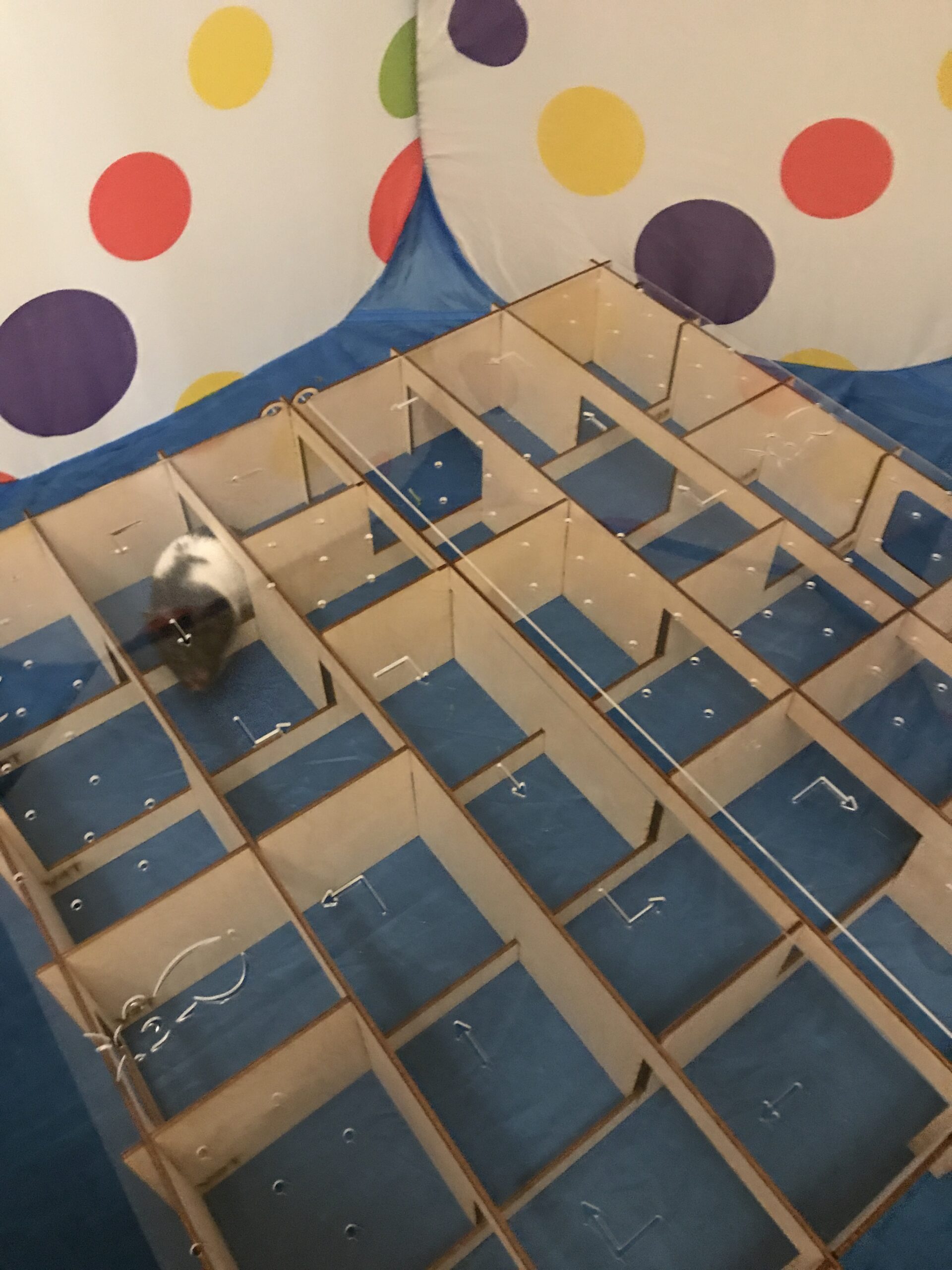

Preskett is committed to substituting petrochemical products with renewables where possible. The centre researches products and processes based on wood, industrial crops, recycled materials and industrial residues to transfer technologies to industry. ’I had a lot of operational experience in forestry: that’s where they felt that I could contribute to the BioComposites Centre,’ says Preskett. He is involved in talks with multinational companies to commercialise sustainable and renewable natural products. He has developed extraction protocols for various plant species, and is now completing his PhD.
#Wood hamster maze full#
(See for full details.)Ī growing interest in natural products led Preskett to a PhD, also at Bangor in the chemistry department, looking at novel sources of fatty acids from unused plants. ’My idea was driven by the chainsaw experience, where additives based on mineral oil technology were quite toxic,’ he says. Preskett started out developing biodiesel on the TCS, but ended up making a range of other products using natural substances as additives to improve the properties of lubricants. Part government funded, KTPs help business to work with universities, colleges or other research institutions to share expertise and increase profitability. This has now been rebranded as a Knowledge Transfer Partnership (KTP). The university’s BioComposites Centre and C&C Oils worked together under a Teaching Company Scheme (TCS).

Even so, he describes the learning curve on starting work at C&C Oils as ’near vertical’. Although he has no formal qualification in chemistry, he has learned in an academic environment through ’experience and quality mentoring’. ’This was a bit of a scale up - my previous attempt at vegetable oil methyl esters was to make just one drop.’ At this point in his career, Preskett had some laboratory-based experience in chromatography and transesterification. When Preskett started working for C&C Oils, he was making tonne batches of biodiesel. A colleague and mentor at Bangor put him in touch with C&C Oils, a local company that wanted to make biodiesel. By this time Preskett was working for the Forestry Commission. His final year dissertation was published as a paper. ’The results were remarkable, and I thought: we can go somewhere with this.’ ’It had never been done before, so it was quite unique.’ What’s more, the vegetable oil outperformed the biodegradable chainsaw oil, and mineral oils. In the final year of his forestry qualification at the University of Wales, Bangor, Preskett tried using pure vegetable oil as a chainsaw lubricant.


 0 kommentar(er)
0 kommentar(er)
